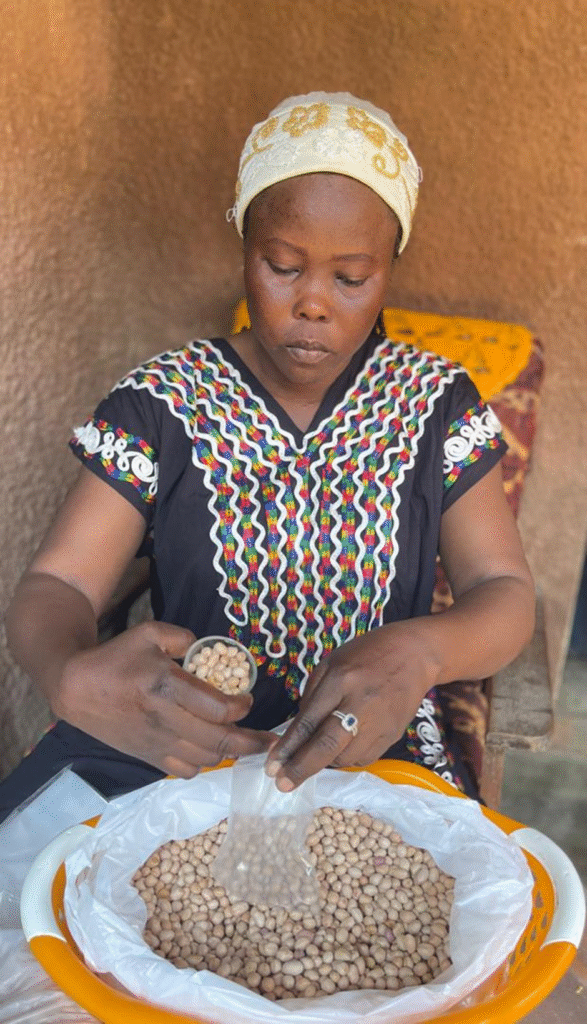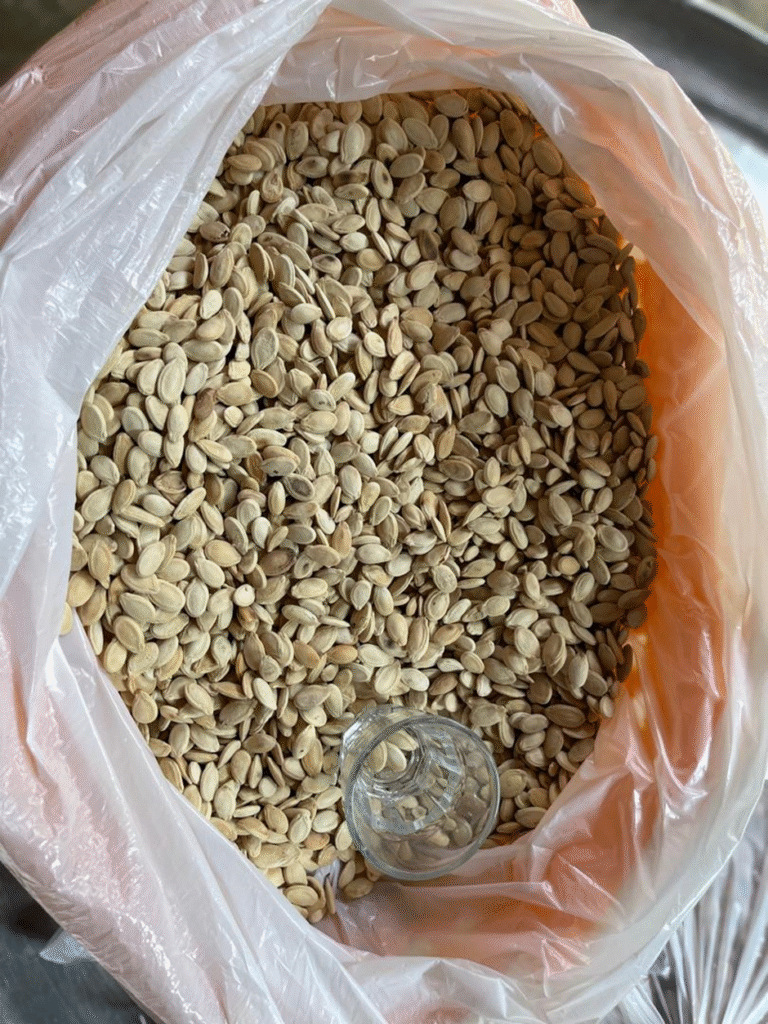South Sudan's English Daily Newspaper
"We Dare where others fear"

By Jenifer James
What began as a modest trade in peanuts and egusi seeds, locally known as Tesali, has blossomed into a lifeline for Betty John Lemi, a determined entrepreneur in Juba. Her small business has enabled her to purchase land in Gumbo, meet her daily needs, and support her family. Now, Betty looks beyond mere survival—she envisions expanding to Terekaka County with plans to open a bakery and restaurant, transforming her humble beginnings into a foundation for greater aspirations.
“Through this small business that you see, I managed to buy a piece of land in Gumbo, and I am also using the money for transport to work. In the near future, I need to expand the business to Terekaka County and open a small bakery for bread and a restaurant there,” Lemi told The Dawn in an exclusive interview.
Betty’s venture selling peanuts and egusi seeds, locally known as Tesali, has become a profitable enterprise. Today, she earns a steady 50-50 profit margin from her small-scale trade, a business that not only sustains her family but also inspires many others in her community.
Tesali, a crunchy and flavourful snack, is popular among young people across Juba. It is often consumed during football matches, overnight gatherings, and leisure hours. For Betty, however, Tesali represents much more than just a snack; it has become a stepping stone towards independence, financial stability, and bigger dreams.
In her exclusive interview with The Dawn newspaper, Betty shared her story—a journey filled with challenges, resilience, and aspirations for the future.
Betty’s journey began humbly three years ago with just one cup of egusi seeds and peanuts. At that time, she could not foresee how far her small business would take her.
“I never imagined that selling peanuts and Tesali could be this lucrative,” Betty recalled with a smile, arranging her products neatly at her bustling stall in Malakia. “It’s been a lot of hard work, but seeing my customers return makes it all worth it.”
Her daily routine starts before sunrise. She sources peanuts from local farmers, ensuring they are fresh, then carefully roasts and sorts them. For Tesali, she adheres to the traditional recipe cherished by her customers. “With Tesali, I don’t change the method,” she explained. “People love the authentic taste, and I believe quality keeps customers coming back.”

The Egusi seeds commonly known as Tesali is ready for sale credit. Jennifer James
Speaking candidly about her earnings, Betty shared, “Right now, I make about a 50-50 profit from my sales. It’s enough to support my family and save a little for the future. This business has given me independence. I feel proud knowing I can take care of my family with the money I earn from my own work.”
Her words reveal a vision far greater than the small stall she currently operates. For Betty, peanuts and Tesali are not the end goal but the beginning of an entrepreneurial journey.
Betty hopes to expand gradually but steadily. “I want to introduce new products and eventually open a small shop,” she told The Dawn. “It’s not just about me. I dream of employing other women in the community so that we can all benefit from entrepreneurship.”
This dream reflects her belief in community growth. Betty sees business not only as a means to uplift herself but also as a tool to empower other women, many of whom struggle to find sustainable sources of income in Juba.
“Sometimes women think they need a lot of capital to start, but that is not true,” Betty said. “Even with one cup of seed or a small idea, you can begin. What matters most is patience, discipline, and commitment.”
Her entrepreneurial journey has not been without setbacks. “Some days, the market is slow, or I struggle to find fresh supplies,” she admitted. “The long hours and early mornings can be exhausting, but every challenge teaches me something new. It makes me stronger and more determined.”
Beyond supply issues, rising prices of goods and transport have also affected her trade. Yet, Betty remains undeterred. She views every obstacle as an opportunity to adapt and grow.
“When things get tough, I remind myself why I started,” she shared. “My family depends on this, and my customers count on me. That is what keeps me going.”
When asked about her greatest motivation, Betty’s face lit up. “It’s the happiness of my customers and knowing that my work can inspire others,” she said warmly. “I want other women to see that even a small business can make a big difference in their lives.”
She also issued a call to action for women across South Sudan: “I encourage women to venture into business, however small it may be. It can facilitate many things and reduce the burden of depending on someone else. Independence is freedom, and it starts with small steps.”
Betty’s story is not just about peanuts and Tesali—it is about hope, perseverance, and empowerment. Through her dedication and commitment to quality, she has transformed a modest idea into a thriving business. Along the way, she has purchased land, supported her family, and laid the foundation for future projects that could employ and uplift others.
Her journey demonstrates that even small beginnings can lead to significant achievements. “I want to leave a legacy for my children,” Betty reflected. “One day, I want them to say, ‘Our mother started with almost nothing, but she built something that changed lives.’ That is my biggest dream.”
Egusi seeds, which form a key part of her trade, remain one of the lesser-known foods in the Western world. They are harvested from a sour-tasting, watermelon-like fruit often called “sour apple.” For many in Juba, however, Tesali made from these seeds is not only a tasty snack but also a cultural staple—and now, a source of empowerment through Betty’s hands.




